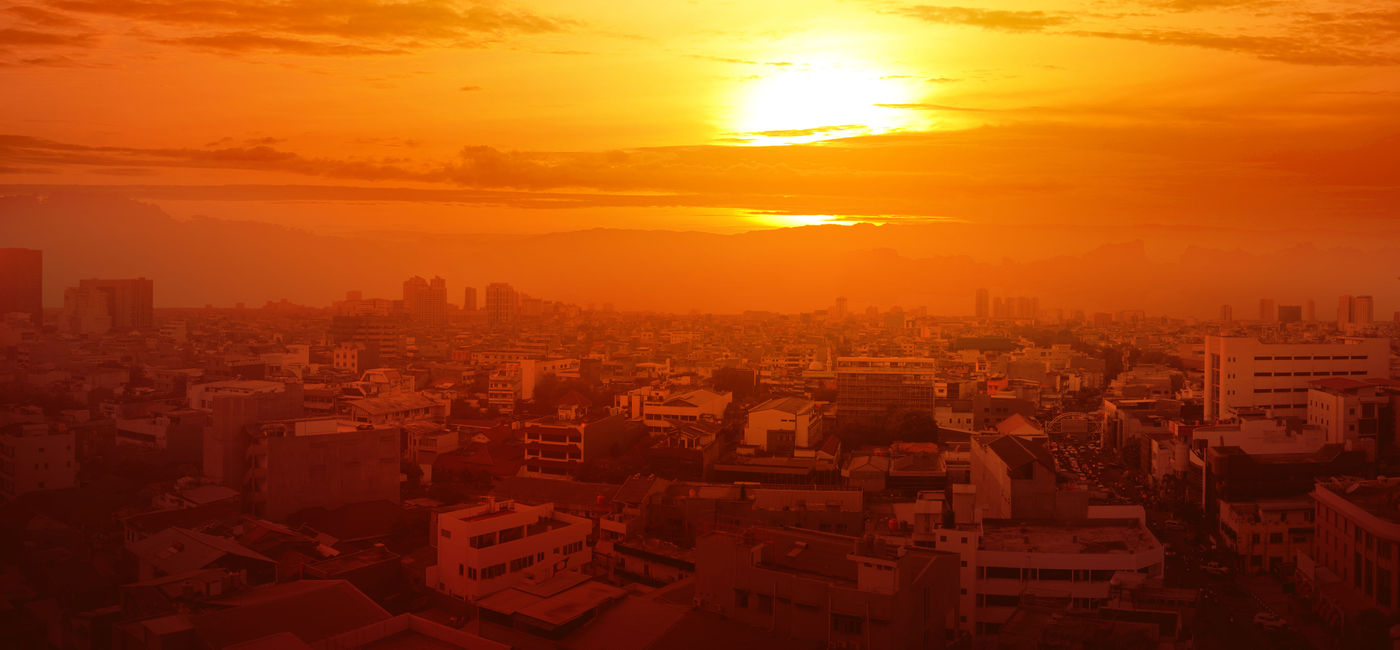Travel Industry CEO Foresees Southern Europe Visits at Risk of Becoming Intolerable

In addition to crushing crowds, summer 2023 in Europe has been marked by another significant challenge—the increasingly unbearable temperatures.
Throughout Southern Europe, a multi-week heat wave smashed records in July. From Spain to Turkey and the Mediterranean Sea, temperatures soared, reaching 109 degrees in Rome, Italy on July 18 and 113.5 degrees on the very same day in the Catalonia region of northeast Spain, according to Weather Underground.
These sorts of record temperatures are not only likely here to stay, but may well grow worse as countries around the world continue to fall significantly short of targets to address global warming.
Amid this backdrop, Intrepid Travel CEO James Thornton is predicting that in the coming years, travel to Southern Europe during peak summer season will simply be a no-go.
“In five to 10 years, I think it will prove challenging to travel around southern Europe during July and August,” Thornton recently told the publication Financial Review. “Most people just won’t want to, it will be far too hot.”
Visiting destinations like Greece in July and August will simply be untenable, predicts Thornton, who is one of three top executives from the company expressing such concerns. Thornton’s sentiments were echoed by Intrepid Co-founder Darrell Wade and the company’s President of the Americas, Matt Berna.
“As a global business, you simply can’t escape it,” Wade said in a post he penned for Adventure.com about the increasing frequency of climate-related events. “This stuff is impacting how we run trips, how we get insurance, where and when we travel, health procedures. It’s changing everything.”
Itinerary Changes Designed to Accommodate Rising Global Temperatures
Faced with the realities of a rapidly warming planet, Intrepid has been busy altering its trip itineraries in order to protect travelers from extreme temperatures. This effort includes implementing earlier start times for activities in order to beat the heat and allowing travelers to shelter indoors during hotter portions of the day. The new approach also includes planning activities for later in the day, when temperatures are ideally cooler.
And that’s not all.
“We have implemented extreme heat policies, determining the maximum temperatures at which itineraries can safely operate certain activities,” Berna told TravelPulse. “For example, in Southern Europe, we are currently operating with all inclusions, with timing adjustments to ensure guests are not exposed to the midday heat and to also accommodate archaeological sites’ reduced opening times.”
The specific time of early morning activities is being determined on a case-by-case basis, in consideration of such factors as local conditions and the sentiments of the travel group and its guide.
“As a company that operates products in over 100 countries—and in vastly different and sometimes extreme weather conditions—our local on-ground teams are well-versed in how to navigate unexpected changes in travel conditions,” Berna explained.
Those unexpected changes appear to be growing increasingly frequent. Intrepid’s monthly operational reports are turning up more and more “weather-related issues” with each passing day.
From January 2022 to April 2023, 76 tours (about one per week) were impacted on some level by climate-related challenges, according to Intrepid data shared with the Financial Review. Those impacts ran the gamut from re-routing a tour to evacuating travelers altogether. The disruptions in question included wildfires, flash floods, landslides, tornados and volcanic events.
“The ongoing impact of these events has the potential to upend seasonal tourism calendars across the globe,” Thornton told Financial Review.
That includes how Americans travel. Intrepid executives anticipate that unpredictable weather conditions in the future will have a greater impact on the choices of American travelers during the summer months.
At the same time Americans are rethinking and recalibrating, so too is Intrepid.
“Understanding the impact of climate change on our global operations is a focus of our operational strategy this year and beyond,” added Berna. “ As a business, and as an industry, it is critical that we get a better understanding of how we need to change and adapt to this new reality.”
Walking a Middle Ground
While expressing concerns about the increasingly dire realities of global warming and the resulting impacts on day-to-day operations, Intrepid’s leadership team also acknowledges the contradictory position that the company holds.
Tourism is a significant contributor to the warming temperatures impacting the planet. The tourism industry generates about bout eight percent of the world’s carbon emissions, Wade pointed out in his Adventure.com post. And travel-related activities such as air travel create a significant carbon footprint.
“We’re a B Corp that does some really good things around the world. We’re carbon neutral, we raise millions for local not-for-profit groups, we create employment opportunities around the globe, and we’re investing in climate projects like carbon sinks and regenerative agriculture. But still, we’re part of the problem,” said Wade.
